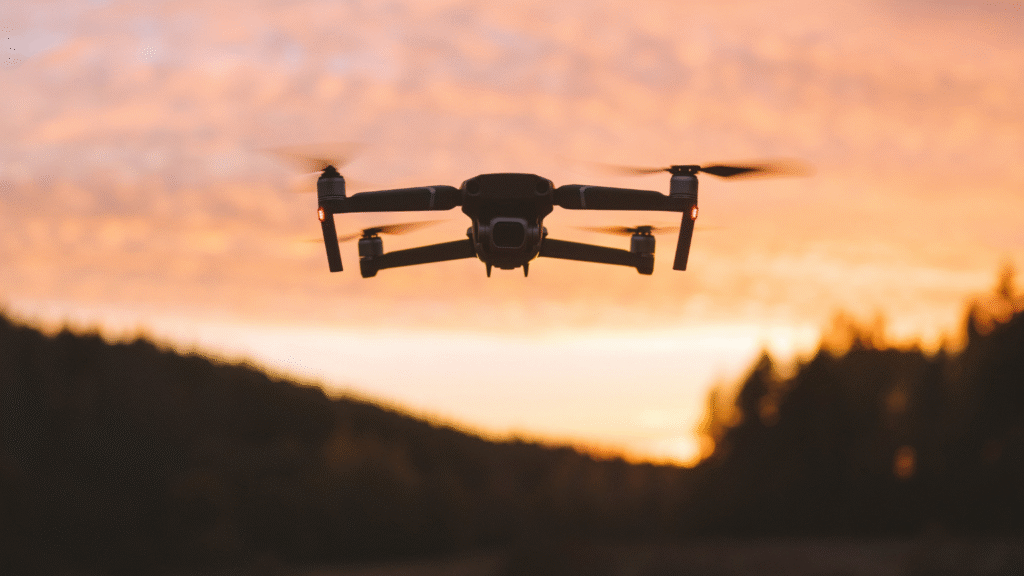India’s defense-tech and AI sectors are experiencing unprecedented momentum, with major funding rounds, government partnerships, and IPO ambitions positioning the country as a global hub for strategic and deep-tech innovation. This shift is redefining the startup landscape and drawing the attention of top investors—from venture capital firms to government-backed entities.
Raphe mPhibr’s $100 Million Raise – India’s Largest Private Defense-Tech Deal
One of the standout stories this week is the $100 million investment in Raphe mPhibr, a Noida-based unmanned systems and AI-powered defense solutions provider. The round was led by General Catalyst, with participation from domestic institutional investors and strategic defense partners.
Key Highlights:
- Raphe mPhibr develops AI-driven UAVs (Unmanned Aerial Vehicles), autonomous border surveillance drones, and thermal imaging systems.
- It serves major clients including Indian Armed Forces, paramilitary units, and has export orders from Southeast Asia and Africa.
- The company plans to use the funding to scale manufacturing, enhance AI-based navigation systems, and support global expansion.
This funding round marks the largest private capital raise in India’s defense-tech space, reflecting investor confidence in dual-use (civil + military) technology platforms.
📡 Brihaspathi Technologies Raises $10 Million for AI Surveillance
Another defense-aligned startup making headlines is Brihaspathi Technologies, based in Hyderabad. The company raised $10 million in Series A funding from strategic investors aligned with the Maharashtra state government’s AI-for-governance vision.
Core Focus:
- Specializes in AI-based surveillance systems, command-and-control centers, and smart policing tools.
- Works closely with Smart City initiatives and municipal-level disaster response systems.
- Plans to go public by FY 2026–27, aiming to be India’s first surveillance AI tech IPO.
The funding will be used to integrate machine learning and real-time analytics into their security products, including crowd behavior analysis and predictive threat mapping.
Why Defense-Tech + AI is Taking Off
Several macro factors are driving this sector’s growth:
| Factor | Impact |
|---|---|
| Geopolitical Tensions | India’s push for strategic autonomy in defense fuels deep-tech R&D |
| Government Policies | Boost from Make in India, iDEX, and Atmanirbhar Bharat |
| AI Integration in Warfare | Demand for real-time intelligence and unmanned tech surges |
| Export Potential | Indian startups now export to friendly foreign nations |
| VC & Institutional Interest | Capital is flowing into scalable, mission-critical applications |
India’s Ministry of Defence recently increased budget allocations for indigenous tech sourcing, and DRDO is actively collaborating with startups under Innovation for Defence Excellence (iDEX).
Market Opportunity
According to a NASSCOM and Roland Berger report:
- India’s defense-tech market is poised to grow to $70 billion by 2030.
- The AI surveillance and smart defense segment could see a CAGR of 25% over the next 5 years.
- Exports are expected to contribute 20–25% of revenues for top Indian startups in this space.
Global Comparisons
India is catching up with countries like the U.S. and Israel, where defense-tech startups like Anduril, Palantir, and Rafael Advanced Defense Systems have scaled rapidly through government-military partnerships. The funding rounds for Raphe and Brihaspathi signal that India is laying the foundation for a similar domestic ecosystem.
Final Thoughts
India’s defense-tech and AI sectors are no longer niche—they’re becoming central to the country’s innovation economy. Startups like Raphe mPhibr and Brihaspathi Technologies are proving that with the right blend of tech vision, military alignment, and VC capital, India can lead the next wave of global defense and surveillance innovation.
As the government deepens its support and investors rally behind dual-use technology, expect more IPOs, public-private R&D labs, and export-led growth. The battlefield of the future is digital, autonomous, and AI-powered—and Indian startups are gearing up to lead it.



